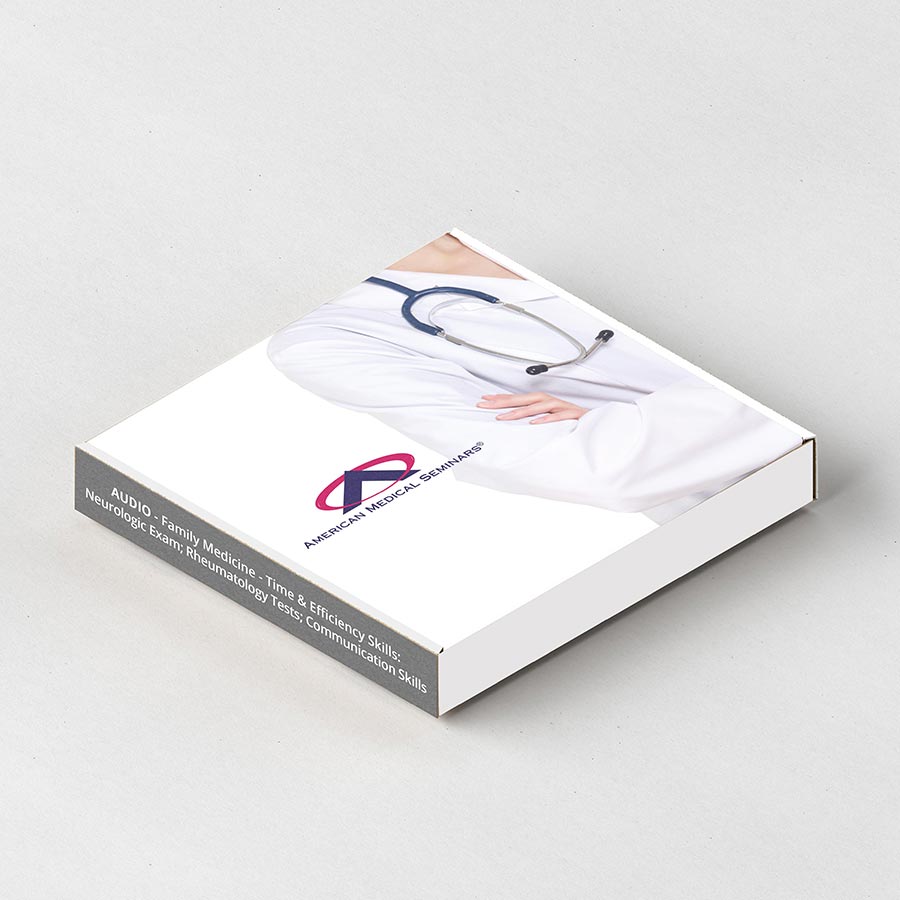Product Description
Expiration Date: July 1, 2019
Title: Family Medicine – Time and Efficiency Skills: Neurologic Exam; Rheumatology Tests; Communication Skills
Faculty: William T. Ayoub, M.D., F.A.C.P., F.A.C.R.; Gary H. Oberlender, M.D., F.A.C.P.; and David E. Riley, M.D.
Original Release Date: July 1, 2016 Review Date: July 1, 2017 Expiration Date: July 1, 2019
TOPIC 1: The Neurological Examination.
Upon completion of this session, the participant should be able to:
- Organize the disparate parts of the neurologic examination into a personally relevant, manageable and reproducible diagnostic tool.
- Perform a concise screening neurologic exam for asymptomatic patients.
- Perform a problem-tailored neurologic exam for patients with neurologic complaints.
- Obtain maximum yield from the examination of a patient with an altered mental status.
TOPIC 2: Laboratory and Radiological Tests in Rheumatology.
Upon completion of this session, the participant should be able to: GL, COMP
- Interpret the various classes of synovial fluid analysis.
- Determine the use and limitations of laboratory testing with emphasis upon the American College of Rheumatology Choosing Wisely recommendations.
- Discuss key x-ray findings in patients with rheumatic diseases.
TOPIC 3: Improving Communication Skills in Medical Practice.
Upon completion of this session, the participant should be able to: COMP
- Appraise the variety of ways that people perceive communication and process information.
- Assess your personal communication strengths and limitations.
- Determine communication issues unique to older patients.
- Develop practices and apply skills to maximize effective communication and listening based on current literature.
- The receipt for any incentive-associated purchase will designate the value of the gift card separately from the cost of the learning activity.
- This incentive may have implications on your tax reporting obligations. Any reimbursed amount must be declared as personal income for tax purposes.


